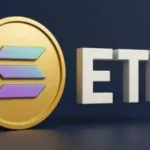
The current infrastructure of correspondent banking networks, where more than $150 trillion is transferred annually, requires two to five days for a payment transaction and costs companies up to $35 per transaction. In addition to the two- to five-day delay in asset circulation, assets are temporarily blocked in the accounts of correspondent banks until they receive counter-claims.
KPMG experts have suggested that blockchain-based stablecoin payment solutions could significantly reduce settlement times from days to minutes or even seconds, depending on the blockchain network used.
“The use of stablecoins as a settlement tool is perhaps one of the most obvious and immediate scenarios for transforming cross-border payments. They will reduce pre-funding requirements and capital pressures, improve overall liquidity, and free up resources that would otherwise be locked up in unused accounts,” KPMG said in a report.
KPMG noted that the experience of stablecoin payments from companies such as JPMorgan and PayPal demonstrates that blockchain-based payments can provide real-time auditing, eliminate intermediaries, and reduce the cost of payment transactions by up to 99%. Earlier, Jamie Dimon, CEO of the American investment bank JPMorgan Chase, said in an interview with CNBC that he had significantly changed his position towards stablecoins, recognized the benefits of blockchain and believes that this technology can simplify many business processes.




